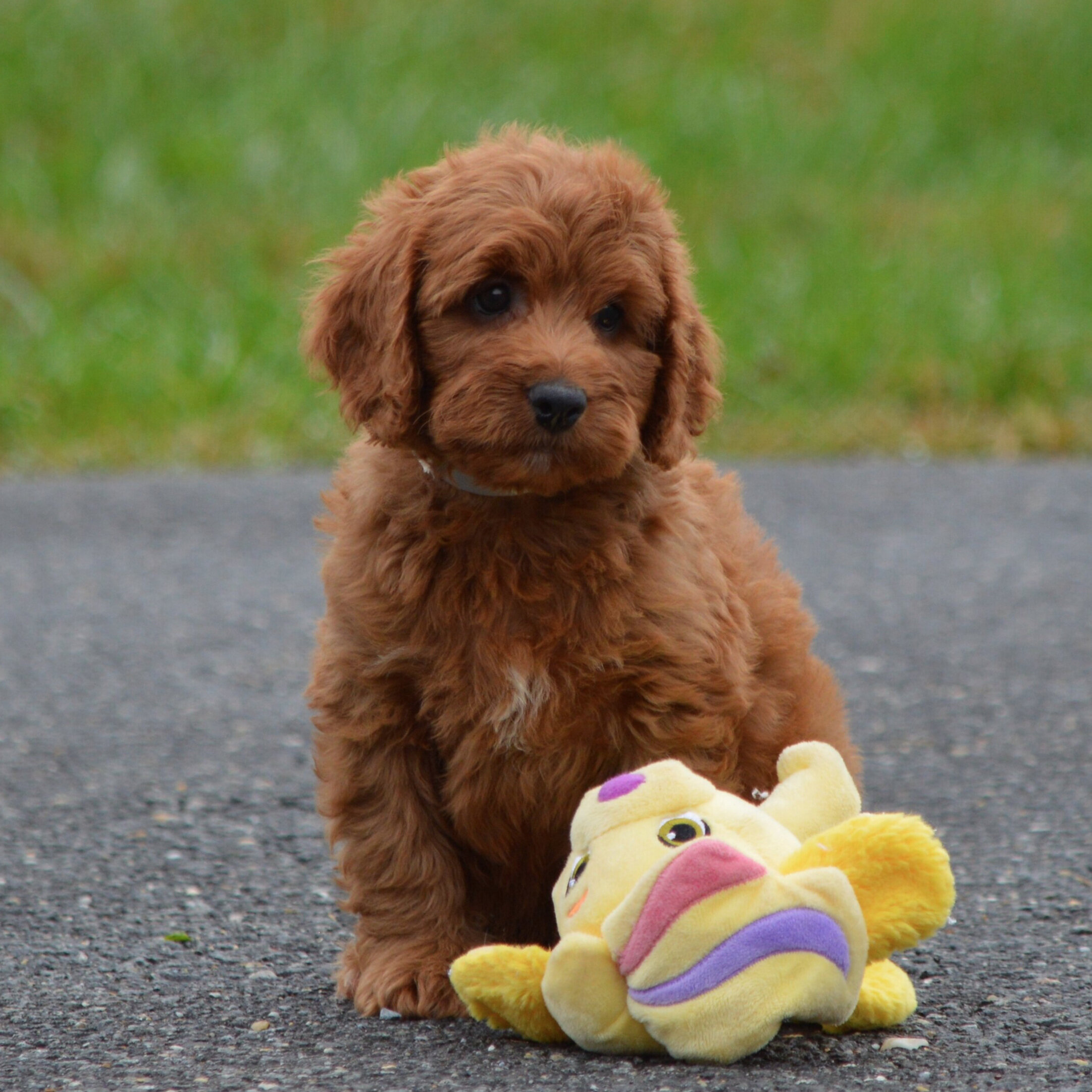Labradoodle Puppy: The Ultimate Guide To Your New Furry Best Friend
So, you're thinking about getting a labradoodle puppy? Let's be real here, these little bundles of joy are more than just pets—they're family members waiting to happen. Whether you're a first-time dog owner or a seasoned pro, there's so much to learn about this adorable mix of a Labrador Retriever and a Poodle. From their playful personalities to their hypoallergenic coats, labradoodle puppies have stolen the hearts of dog lovers worldwide. But before you dive headfirst into the world of labradoodles, let's break it down for you in a way that's both fun and super informative.
Now, I know what you're thinking—why labradoodles? Well, these pups are not just cute; they're also incredibly smart, loyal, and friendly. They're the perfect blend of two amazing breeds, making them ideal for families, singles, and even those with allergies. In this guide, we'll cover everything you need to know about labradoodle puppies, from choosing the right one to training tips and health considerations.
But hey, let's not sugarcoat it—owning a labradoodle puppy is a big responsibility. You'll need to invest time, energy, and yes, even money to ensure your furry friend grows up happy and healthy. So buckle up, because by the end of this article, you'll be an expert on all things labradoodle!
Read also:Nicholas Hunter The Rising Star You Need To Know About
Table of Contents
- Introduction to Labradoodle Puppies
- The Fascinating History of Labradoodles
- Key Traits of Labradoodle Puppies
- How to Choose the Right Labradoodle Puppy
- Training Tips for Your New Labradoodle
- Common Health Concerns in Labradoodles
- Grooming and Coat Care
- Feeding Your Labradoodle Puppy
- Costs of Owning a Labradoodle
- Frequently Asked Questions
Introduction to Labradoodle Puppies
Labradoodle puppies are a crossbreed between a Labrador Retriever and a Poodle, and they come in all shapes and sizes. These dogs are known for their friendly demeanor, intelligence, and adaptability. Whether you're looking for a loyal companion or a service dog, labradoodles have got you covered. They're also hypoallergenic, which makes them perfect for allergy sufferers.
But let's talk about their personalities for a sec. Labradoodles are super social creatures who love nothing more than spending time with their humans. They're playful, affectionate, and always eager to please. If you're someone who loves outdoor adventures or just lounging around at home, a labradoodle puppy will fit right in.
Why Labradoodles Are So Popular
There's no denying that labradoodles have become one of the most popular dog breeds in recent years. Their unique combination of traits makes them stand out from the crowd. Here are a few reasons why they're so beloved:
- Intelligent and easy to train
- Low shedding, hypoallergenic coats
- Highly adaptable to different living environments
- Great with kids and other pets
The Fascinating History of Labradoodles
Labradoodles were first bred in Australia back in the 1980s by a breeder named Wally Conron. The goal was to create a guide dog that was hypoallergenic and suitable for people with allergies. The experiment was a huge success, and soon labradoodles started gaining popularity not just as service dogs but as family pets as well.
Since then, labradoodles have been bred in various countries around the world. They come in three main sizes—standard, medium, and miniature—each with its own unique characteristics. Today, labradoodles are celebrated for their versatility and have become one of the most sought-after dog breeds globally.
Generations of Labradoodles
One interesting aspect of labradoodles is that they come in different generations, depending on how many times they've been crossbred:
Read also:Zara Rahim The Rising Star In The World Of Entertainment
- F1: First-generation labradoodles, 50% Labrador and 50% Poodle
- F1b: A labradoodle crossed back with a Poodle, resulting in a more hypoallergenic coat
- F2: Second-generation labradoodles, a mix of F1 labradoodles
- F2b: A mix of F1 and F1b labradoodles
Key Traits of Labradoodle Puppies
Labradoodle puppies are a joy to have around, but it's important to understand their key traits before bringing one home. These dogs are known for their intelligence, playfulness, and loyalty, but they also require a lot of attention and care. Here's a closer look at what makes labradoodles so special:
First off, labradoodles are incredibly smart. This means they're quick learners and can pick up commands in no time. However, their intelligence also means they can get bored easily if not mentally stimulated. So, be prepared to keep them engaged with toys, puzzles, and training sessions.
Temperament and Behavior
Labradoodles are generally friendly and outgoing. They love meeting new people and other animals, making them great companions for social households. However, they can also be a bit clingy at times, so it's important to teach them independence from a young age.
Another thing to note is that labradoodles are energetic dogs. They need plenty of exercise and playtime to burn off their excess energy. If you're someone who enjoys outdoor activities like hiking or running, you'll find a perfect partner in a labradoodle puppy.
How to Choose the Right Labradoodle Puppy
Choosing the right labradoodle puppy is crucial for ensuring a happy and healthy relationship between you and your new furry friend. Here are some tips to help you make the right decision:
Start by researching reputable breeders. Look for breeders who prioritize the health and well-being of their dogs. Ask for health clearances and genetic testing results to ensure the puppy is free from common health issues.
When visiting the breeder, pay attention to how the puppies interact with you and each other. A well-socialized labradoodle puppy should be curious, playful, and not overly shy or aggressive.
Questions to Ask the Breeder
- What kind of health screenings have been done?
- What is the puppy's lineage?
- How have the puppies been socialized?
- What kind of diet do you recommend for the puppy?
Training Tips for Your New Labradoodle
Training a labradoodle puppy can be a rewarding experience, but it requires consistency and patience. These dogs are smart and eager to please, which makes training them relatively easy compared to other breeds. Here are some training tips to get you started:
Start with basic commands like "sit," "stay," and "come." Use positive reinforcement techniques such as treats, praise, and playtime to reward good behavior. Labradoodles respond well to positive reinforcement and will quickly learn what's expected of them.
It's also important to socialize your labradoodle puppy from a young age. Introduce them to different people, animals, and environments to help them become well-rounded and confident adults.
Common Training Challenges
One common challenge when training labradoodles is their tendency to get distracted. They have a curious nature and can easily lose focus during training sessions. To overcome this, keep sessions short and engaging, and always end on a positive note.
Another challenge is housebreaking. Labradoodles can take a bit longer to learn where to go potty, so be patient and stick to a consistent routine. Use puppy pads and take them outside frequently to help them understand where they should relieve themselves.
Common Health Concerns in Labradoodles
Like any breed, labradoodles can be prone to certain health issues. It's important to be aware of these potential concerns so you can take preventive measures and catch any problems early on. Here are some common health issues to watch out for:
- Hip dysplasia
- Elbow dysplasia
- Progressive retinal atrophy (PRA)
- Allergies
Regular vet check-ups and a healthy diet can go a long way in keeping your labradoodle puppy in tip-top shape. Make sure to discuss any concerns with your veterinarian and stay up-to-date with vaccinations and preventive care.
Preventive Care
Preventive care is key to keeping your labradoodle healthy. This includes regular grooming, dental care, and parasite prevention. Brush their teeth regularly to prevent dental diseases, and check for fleas and ticks during grooming sessions.
Grooming and Coat Care
Labradoodles are known for their hypoallergenic coats, but they still require regular grooming to keep them looking their best. Their coats can vary from wavy to curly, and they may shed less than other breeds, but they still need attention.
Brush your labradoodle's coat at least a couple of times a week to prevent matting and tangling. Depending on the coat type, you may need to take them to a professional groomer every few months for a haircut.
Grooming Tips
- Use a slicker brush or pin brush for daily grooming
- Check their ears regularly for signs of infection
- Trim their nails every few weeks to prevent overgrowth
Feeding Your Labradoodle Puppy
Feeding your labradoodle puppy a balanced and nutritious diet is essential for their growth and development. Puppies have different nutritional needs than adult dogs, so it's important to choose a high-quality puppy food that meets those requirements.
Feed your labradoodle puppy three to four small meals a day until they're about six months old. After that, you can gradually switch to two meals a day. Always provide fresh water and avoid overfeeding to prevent obesity.
Recommended Diet
Look for puppy food that contains high-quality protein, healthy fats, and essential vitamins and minerals. Avoid foods with fillers, artificial preservatives, and low-quality ingredients. Consult with your vet if you're unsure about the best diet for your labradoodle puppy.
Costs of Owning a Labradoodle
Owning a labradoodle puppy comes with certain costs that you should be prepared for. From the initial purchase price to ongoing expenses like food, grooming, and vet visits, it's important to budget accordingly.
The cost of a labradoodle puppy can vary depending on factors like the breeder's reputation, the puppy's lineage, and the region you live in. On average, you can expect to pay anywhere from $800 to $2,500 for a well-bred labradoodle puppy.
Ongoing Expenses
- Food: $40-$80 per month
- Grooming: $50-$100 every few months
- Vet visits: $200-$500 annually
Frequently Asked Questions
Here are some common questions people have about labradoodle puppies:
How long do labradoodles live?
Labradoodles typically live between 10 to 15 years, depending on their size and overall health.
Are labradoodles good with kids?
Yes, labradoodles are known for being great with kids. They're patient, playful, and protective, making them ideal family pets.
Do labradoodles shed?
Labradoodles shed less than other breeds, but they're not entirely hypoallergenic. Regular grooming can help minimize shedding.
How much exercise do labradoodles need?
Labradoodles require at least an hour of exercise per day. This can include walks, playtime, and mental stimulation activities.
Conclusion
Labradoodle puppies are truly amazing
Unveiling The Secrets Of Las Vegas Asian Massage: A Relaxation Journey
Cafe Tiger: The Roaring Heart Of Your Coffee Adventure
DIY Hat Rack: A Stylish And Functional Way To Organize Your Hats

Miniature Australian Labradoodle Puppies

Standard Labradoodle Puppies

How Much To Feed Australian Labradoodle Puppy Puppy And Pets